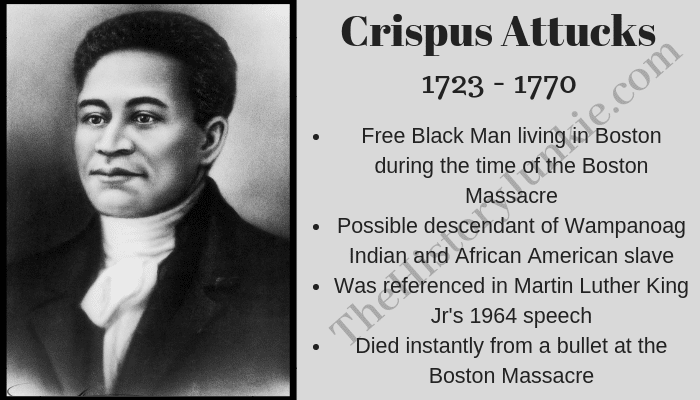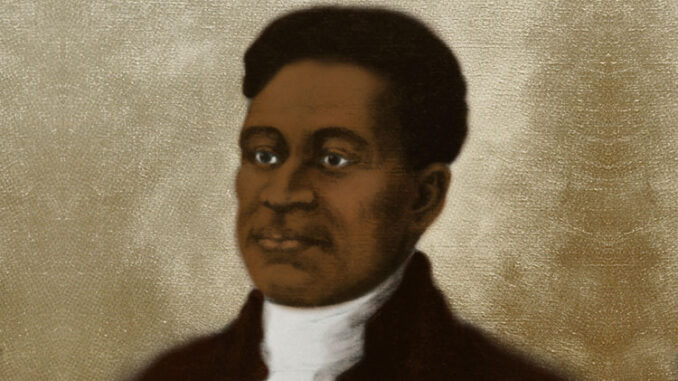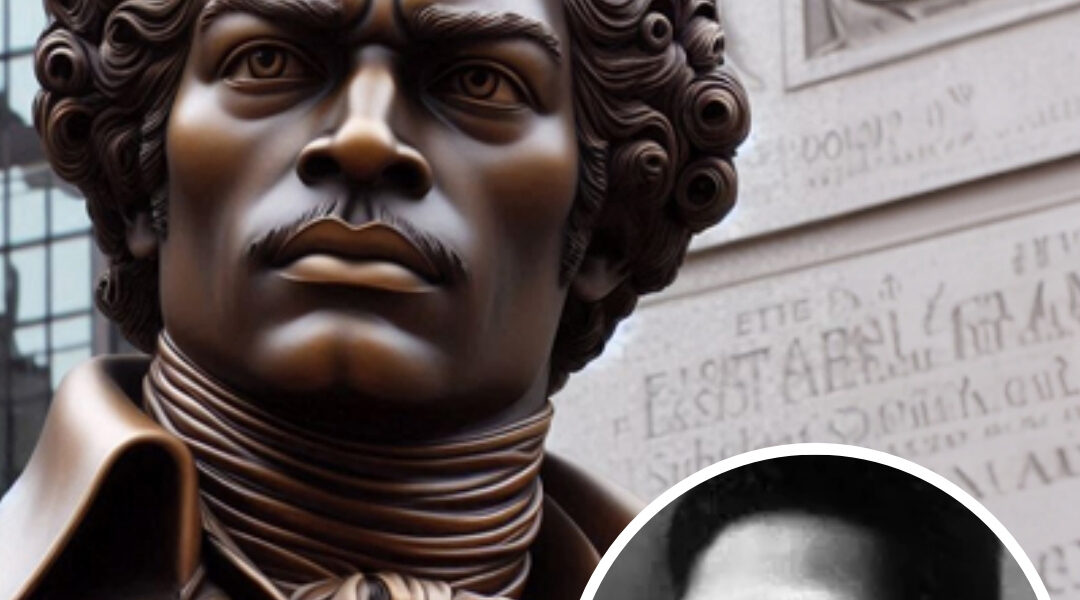The Man Who Fell First

Long before the first shots of the American Revolution echoed across fields and rivers… before anyone spoke of independence or liberty… before a nation even knew it would be born — there was a man whose name history nearly lost.
A man who lived in the margins.
A man who ran toward danger when others stepped back.
A man who fell before anyone else did.
His name was Crispus Attucks.
But he began as a boy with very little to call his own.
Born Between Worlds

Crispus Attucks entered the world around 1723, a child of two nations that never claimed him.
His father, historians believe, was an African man stolen from his homeland and enslaved in the colonies.
His mother was a Natick Indian woman, descended from the tribes who had walked Massachusetts soil long before the first Europeans arrived.
From the moment he drew breath, Crispus belonged nowhere — too African for the world of the colonists, too Native for the world of the British, too enslaved for the world of freedom.
And yet, he grew.
He became tall — towering, really — strong enough to work the land, smart enough to bargain and trade, bold enough to dream beyond the boundaries others drew for him.
One day in 1750, a newspaper advertisement appeared in the Boston Gazette, posted by a landowner desperate to recapture a runaway slave named “Crispas.”
The description was unmistakable:
“A Molatto Fellow… 6 feet 2 inches high… short curled hair…”
It was Crispus Attucks.
He had escaped.
And this time, he didn’t look back.
For two decades, he lived as a free man — or as free as a Black sailor in colonial America could be.
He worked on whaling ships, hauling heavy ropes and battling seas that swallowed men whole.
He worked in ropewalks in Boston, earning just enough to get by.
But even freedom had chains.
British naval officers routinely kidnapped sailors like him and forced them into service.
British soldiers, stationed in Boston, took jobs from local workers.
Tensions simmered every day.
And Crispus Attucks — tall, strong, unafraid — found himself living in a city ready to explode.

The Spark Before the Fire
March in Boston was still bitter, the kind of cold that stiffens fingers and tempers alike.
On March 2, 1770, a fight broke out between rope makers and British soldiers who had taken part-time work from them. Voices rose. Fists flew. Resentment grew thicker than the snow in the streets.
Three nights later, everything collapsed at once.
A single British soldier, wandering the streets in search of work or perhaps just relief from boredom, entered a Boston pub — only to be confronted by angry seamen. Among them was Crispus Attucks.
Words were exchanged.
Hands were raised.
The fuse was lit.
By evening, the streets outside the customs house were filled with tension sharp enough to cut the night open.
A lonely British sentry stood at his post as Bostonians drifted in — some curious, some drunk, some angry, some simply following the noise.
And Crispus Attucks stood at the front.
Some would later say he led the protest.
Some said he simply leaned on a stick.
History never agreed on that part.
But everyone agrees on what happened next.

The Night the First Shot Was Fired
As the crowd swelled, people hurled snowballs, ice, and bits of debris at the sentry.
Shouts filled the air.
Drums beat in the distance.
Reinforcements arrived — eight redcoats lined up in a tight row, muskets drawn, ordered to hold the line.
The colonists surged forward.
The soldiers raised their weapons.
And in one terrible, deafening moment, someone fired.
Then another shot.
Then another.
Crispus Attucks was hit first.
He fell instantly — a huge man crumpling onto the frozen street, blood pooling beneath him, soaking into the snow.
He did not speak.
He did not rise.
He became the first casualty of what would soon be called the Boston Massacre.
Four more colonists died around him.
But history knew something else:
The first blood spilled in the fight for American liberty was the blood of a man born into slavery.
A Martyr Before a Nation Existed

Boston had strict segregation laws even in death — Black men were not buried alongside white men.
But that week, the city broke its own rules.
Crispus Attucks and the others were laid in state together at Faneuil Hall, mourned by thousands, buried as martyrs.
His sacrifice shook the colonies.
His name traveled from port to port.
People whispered:
If the British will fire on an unarmed man… they will fire on all of us.
And the path toward revolution became unavoidable.
The Trial That Tested a Nation
In court, eight British soldiers and their captain, Thomas Preston, stood accused of murder. The defense attorney — a name that would echo through history — was John Adams, future second president of the United States.
Adams argued the colonists were a mob. He claimed Crispus Attucks helped incite the violence. It was a strategy to save his clients — and it worked. The soldiers were acquitted.
But the truth lived longer than the verdict.
Samuel Adams, cousin of the future president, said Crispus Attucks was doing nothing more than leaning on a stick when he was killed.
Whether he led the charge or simply stood his ground, his death became symbolic — the moment when resistance turned into revolution.
A Legacy of Courage
Crispus Attucks left behind no diary, no letters, no descendants.
All that remains are clues — an advertisement for a runaway, a few testimonies, a grave in Boston, a name in history’s earliest chapter.
But what he left behind mattered more than any document.
A century after his death, abolitionists invoked his name.
In 1888, a monument was raised in his honor.
During the civil rights movement, Dr. Martin Luther King Jr. wrote that Attucks showed a “moral courage” that helped define America itself.
Because the story of the American Revolution doesn’t begin with generals, or congresses, or declarations.
It begins with a man who chose to stand in the open, at the front, refusing to disappear into the shadows of history.
A man who carried no weapon.
A man who carried no title.
A man who carried only the determination to be seen.
Crispus Attucks fell first.
And because he fell, a nation rose.




